AUBURN — Brady Ouellette sits at Dag’s Bait & Tackle and considers the question he’s asked himself many times over the past year: Could he win the Sebago Lake Rotary Ice Fishing Derby once again?
“I don’t feel I can win it back-to-back, but I feel I can win another one,” said Ouellette, 22, an Auburn resident who works at the bait shop. “It would be pretty hard. Last year there were only 800 people entered. Some years there are 1,000 or more.”
The winner of Maine’s biggest ice fishing derby last year, Ouellette is a student of his sport. He says he hauled in the winning 39-inch, 14.88-pound togue with a bit of luck, but also some measure of know-how.
As the Sebago Derby enters its 15th year, the big lake may not be able offer safe ice this winter. However, derby organizers created a contingency plan three years ago that allows the event to default to smaller ponds in Cumberland County, so the derby will be held Feb. 27-28 regardless of the ice conditions on Sebago.
That won’t help Ouellette, who believes the really big fish in Maine waters are found in the really big, deep lakes, such as Sebago. The lake’s surface covers 27,000 acres and is more than 300 feet deep in places.
Like many ice fisherman, Ouellette is given to spending time alone or with just a few friends, away from the crowds. Ask him about fishing – why he has taken photos of the bottom of Sebago Lake with an underwater camera, why he has given state biologists the otolith bone of his winning togue to determine its age, why, indeed, he spends every weekend of the winter on the ice – and it becomes clear he thinks of little else.
“I don’t know him very well. But I know he is one of those guys who lives to fish,” said regional fisheries biologist Francis Brautigam.
Since Ouellette became mesmerized by ice fishing at age 16, he’s learned a lot in just six years. He knows big fish act differently than little ones. They fight less, believe it or not. And he claims you can catch more fish through the ice jigging (holding the fishing line and pulling on it) than with traps.
“I feel I catch 50 percent more fish jigging,” Ouellette said. “There is still a little bit of luck in it. But I do believe there is a bit of skill to be used in fishing.”
When he and fishing buddy Tim Larracey started fishing at 5:30 a.m. on the first day of the Sebago derby last year, Larracey set up traps and a jigging line, while Ouellette sat for five straight hours doing nothing but jigging.
The state allows five lines in the water per fisherman when ice fishing. Ouellette felt he only needed one.
Larracey went crazy, hounding Ouellette for five hours.
“I told him to set his damn traps. He’s a stubborn guy,” said Larracey, who lives in Poland.
Finally, at 10:30 a.m., Ouellette set a trap, but he put a 9-inch bait fish at the end of the line.
The theory, Ouellette and Larracey say, is if you use large bait, you catch large fish.
Within an hour, the line started to run.
“He kept joking that the flag was up. So when it finally went up, I wasn’t looking. The next thing I knew, he almost knocked me over,” Ouellette said.
The line went out slowly, but experience told Ouellette it was a very big fish.
“When it swam by, the size of its head was so big. My buddy turned him, because the big ones don’t come right to the hole,” Ouellette said.
Together, they hauled out what would be the winning entry.
Still, Larracey, 25, who also fishes every weekend, said the catch could be attributed to luck – on a day when everything else had been going wrong.
First, they were late and didn’t get the spot on the lake they wanted. Then they got into the argument when Ouellette only wanted to jig. And when they finally got a big one on the line, Larracey started yelling and Ouellette ignored him.
“I didn’t believe him,” Ouellette said.
Larracey said the big bait (a species neither man will identify) might have been the difference.
“You fish with big bait, it tends to be a slow day. A lot of people can’t stand that. When I fish with big bait, I might only get one flag all day. But I’m usually really lucky if I get that flag,” Larracey said.
Brautigam, the state’s fisheries biologist, said fisherman who repeatedly catch big fish usually apply some science by using the right bait, the right tackle and the right line.
“There is always some element of luck, but a skilled angler will increase the odds of finding and catching a large fish,” Brautigam said. “Some people talk about these record fish caught in the state of Maine, and a lot of them are caught because an angler was in the right place on the right day.
“But anglers that consistently go out and catch large fish do so because they have the skill level and the understanding of how to pursue that fish and how to present bait.”
What about Ouellette’s chances of winning the Sebago Derby twice?
“You’d have to ask a mathematician,” Brautigam said.
The derby organizers at the Sebago Lake Rotary Club wouldn’t be surprised.
“We have a lot of repeat ice fishermen. Lots of them just go out and fish. And that young man knew his area,” said derby director Deb McPhail. “Lots of people like to go fish their area.”
Send questions/comments to the editors.


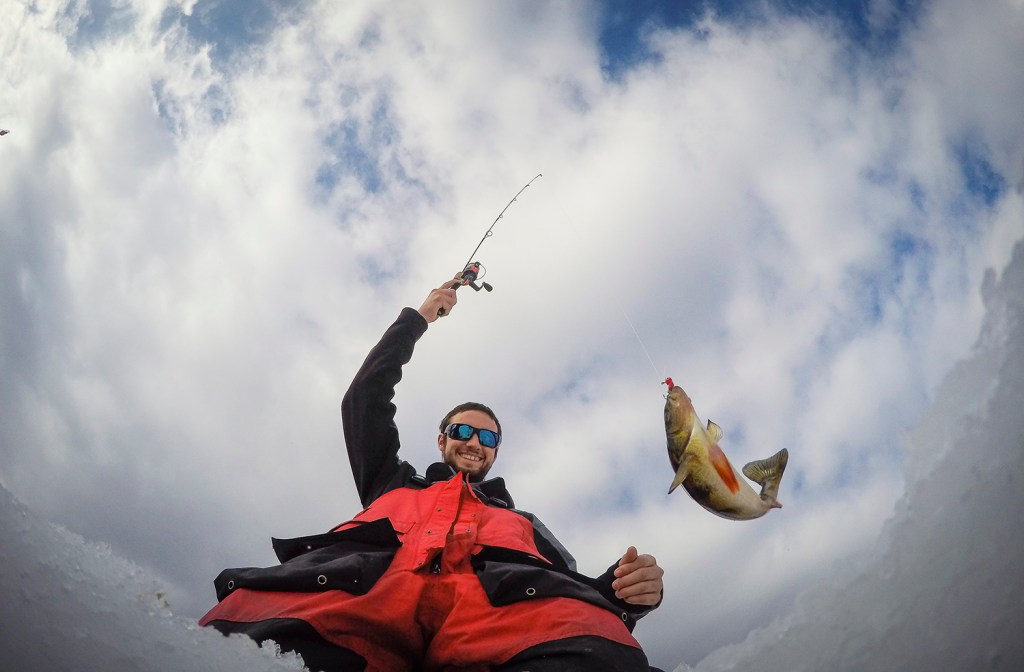
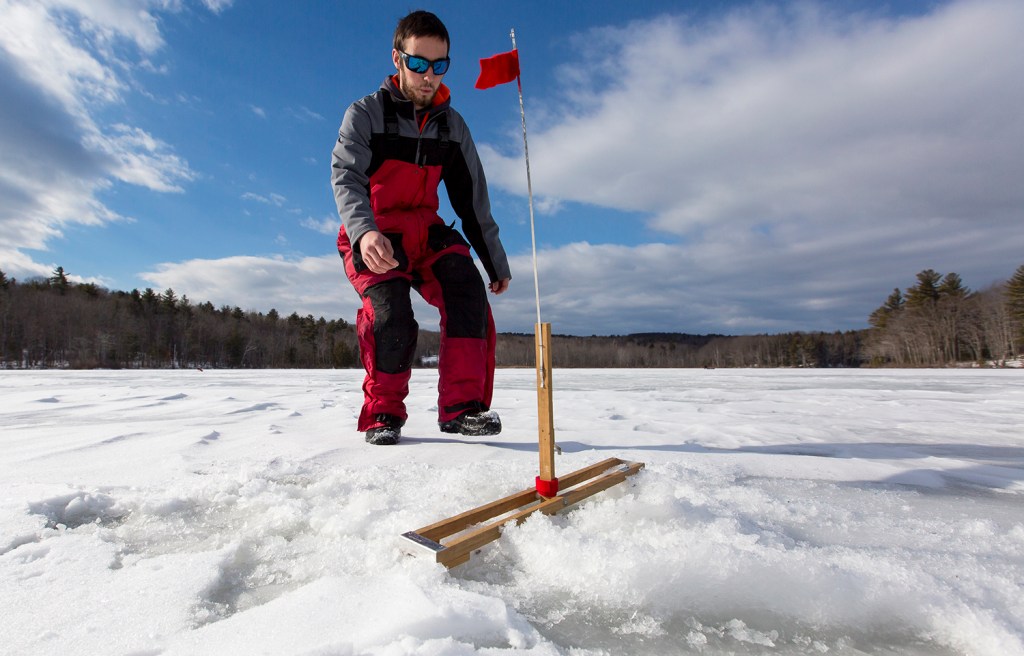
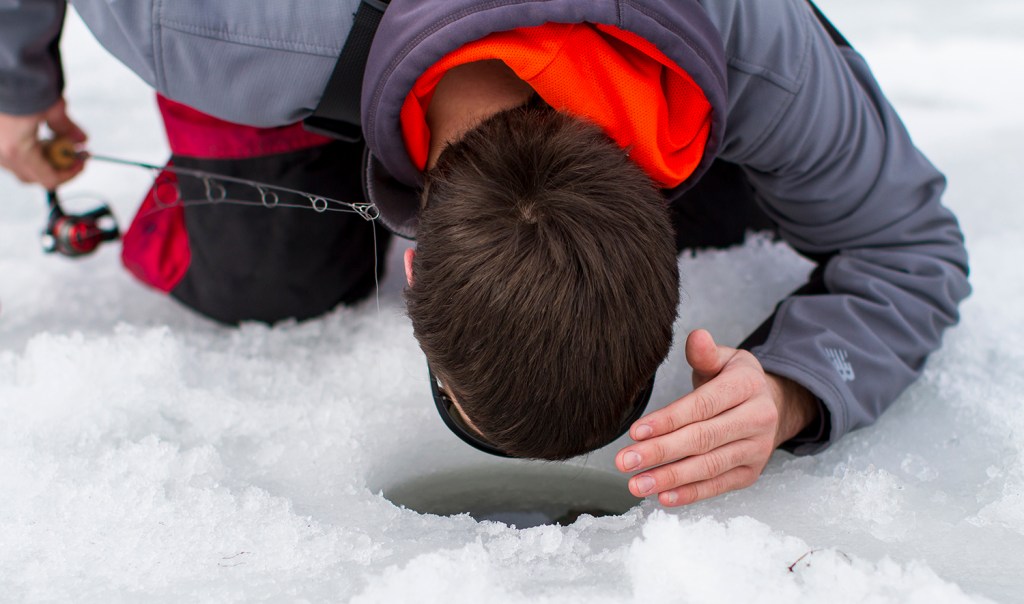
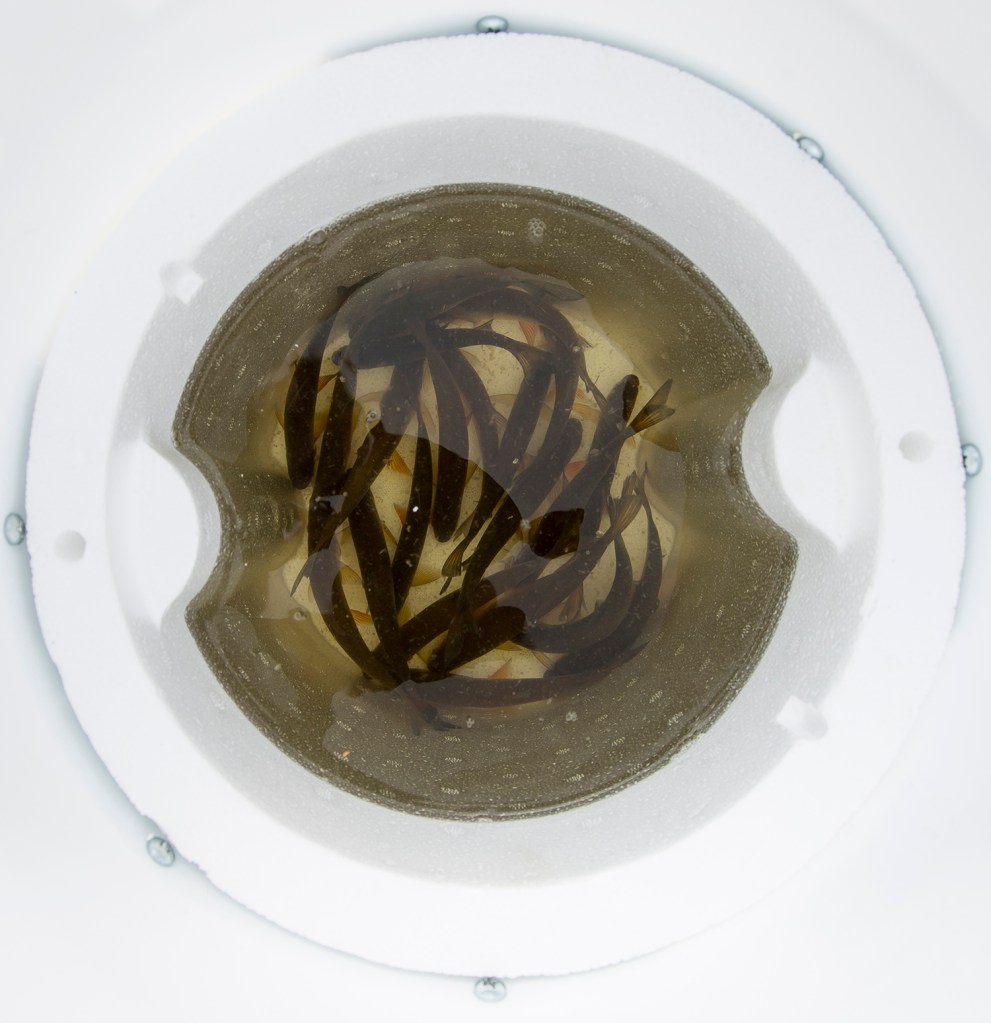
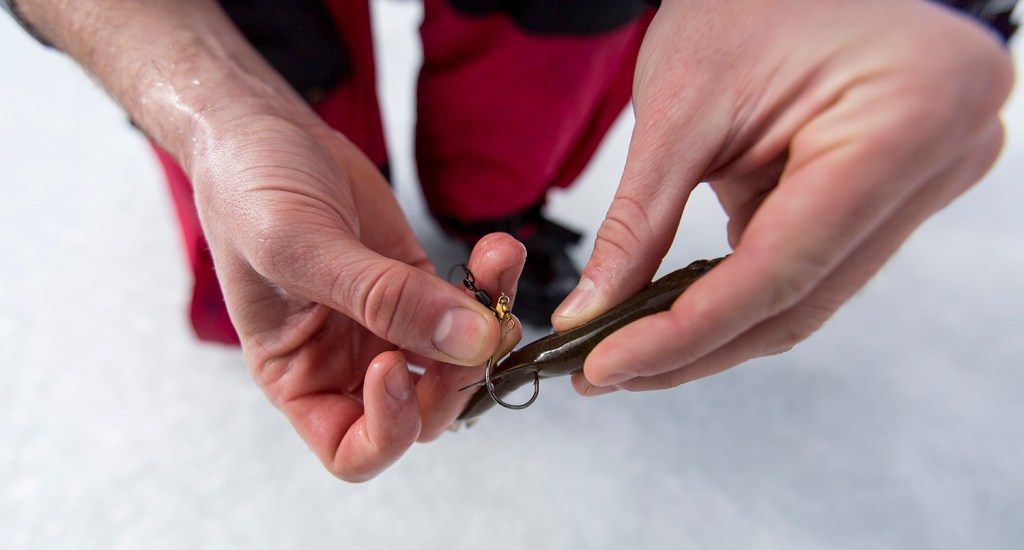
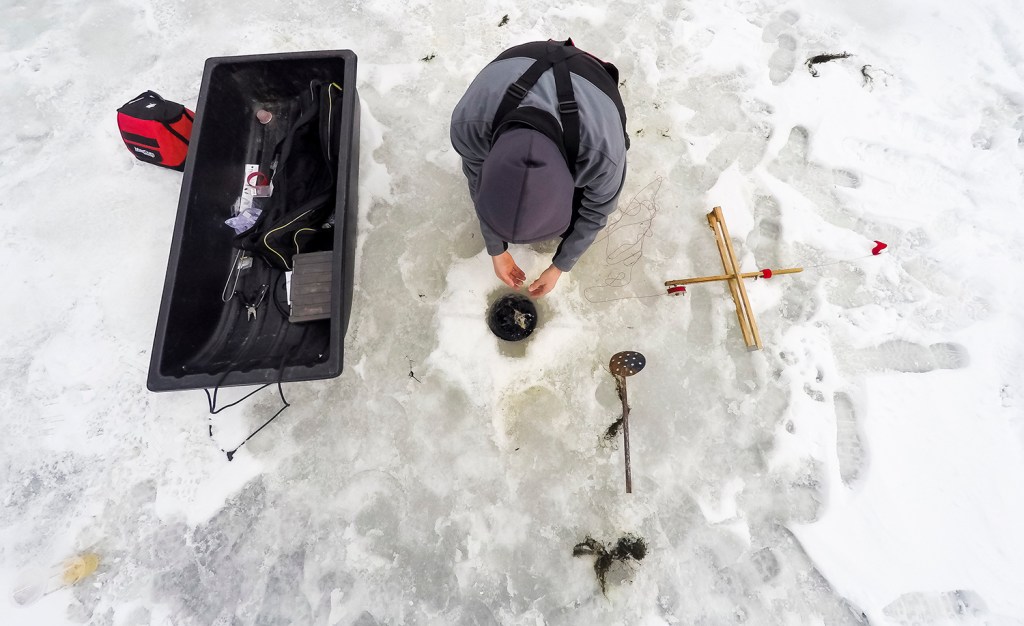
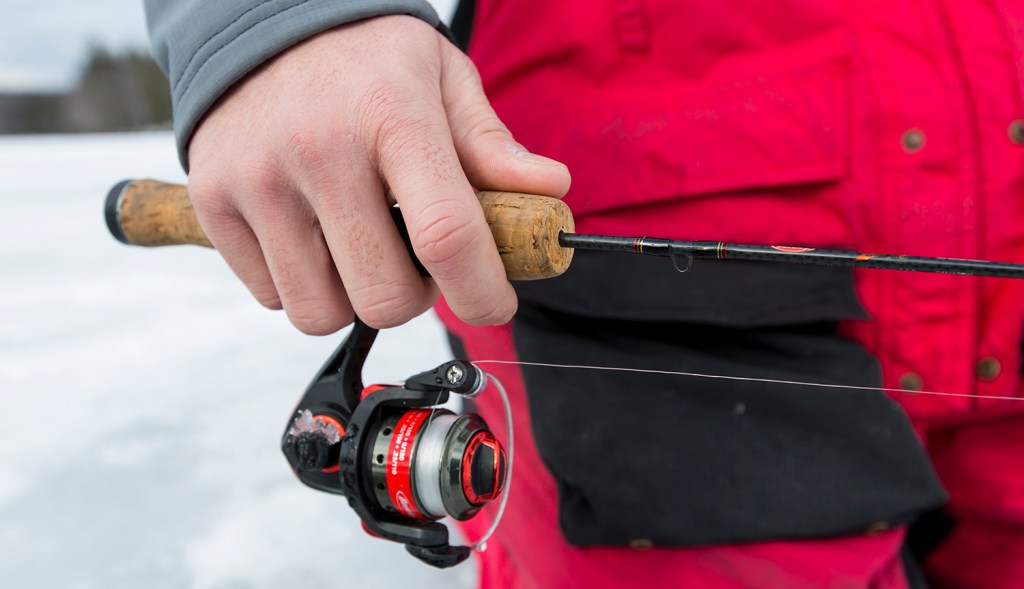
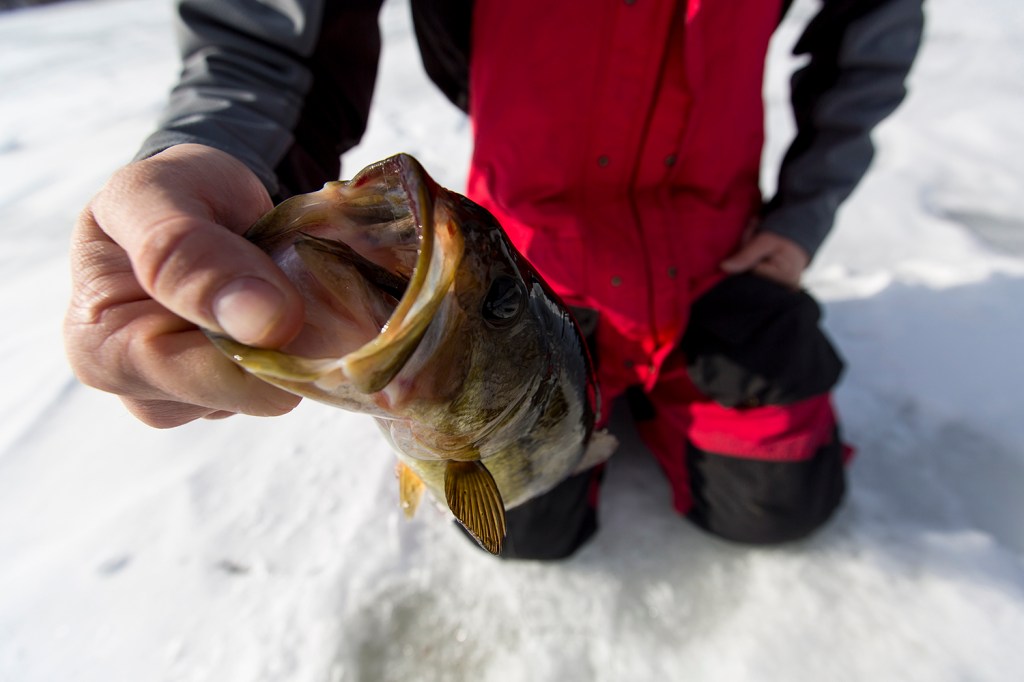
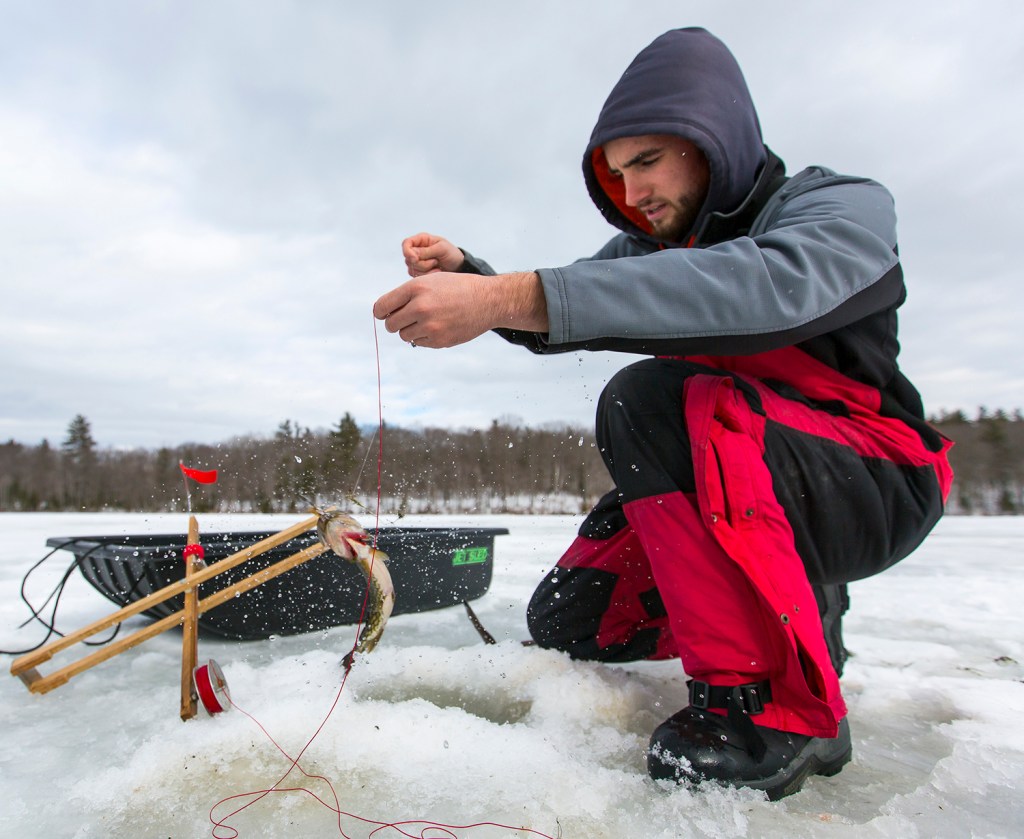


Success. Please wait for the page to reload. If the page does not reload within 5 seconds, please refresh the page.
Enter your email and password to access comments.
Hi, to comment on stories you must . This profile is in addition to your subscription and website login.
Already have a commenting profile? .
Invalid username/password.
Please check your email to confirm and complete your registration.
Only subscribers are eligible to post comments. Please subscribe or login first for digital access. Here’s why.
Use the form below to reset your password. When you've submitted your account email, we will send an email with a reset code.